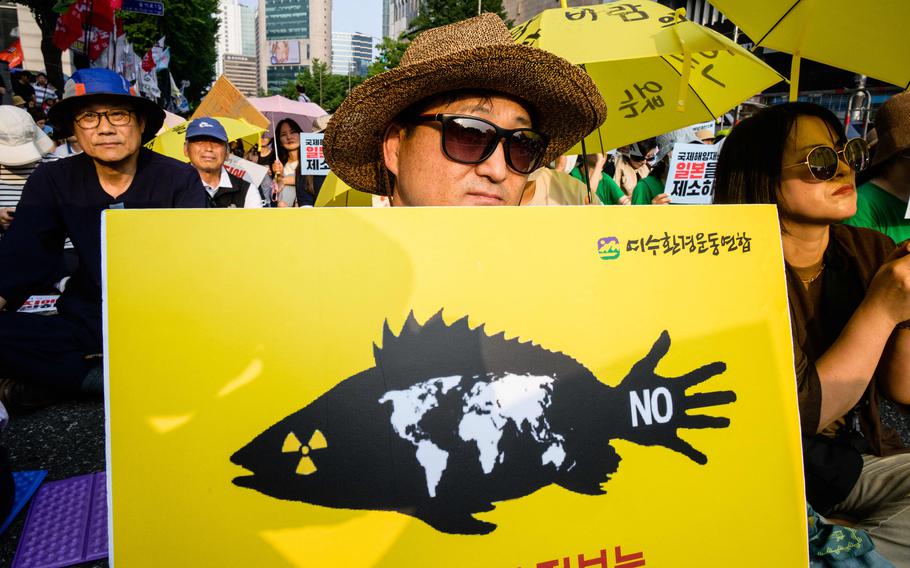
Activists gather to protest against a planned release of water from the Fukushima Dai-Ichi nuclear plant in Japan, in Seoul, South Korea, on June 24, 2023. (Anthony Wallace, AFP via Getty Images/TNS)
TOKYO (Tribune News Service) — Japan will begin a contentious plan to release treated wastewater from the wrecked Fukushima nuclear plant into the Pacific Ocean on Thursday.
Prime Minister Fumio Kishida on Tuesday confirmed the date Tokyo Electric Power Co. can start a process to discharge about 1.3 million cubic meters of the water — equivalent in volume to about 500 Olympic-size swimming pools — over a period of at least 30 years. The plan has drawn fierce criticism from China and some other nations, which have questioned the proposal’s safety.
“If there are no issues with the weather and sea conditions, we expect the discharge to begin Aug. 24,” Kishida said following a Cabinet panel meeting. “The Japanese government will take responsibility to make sure the proposal is carried out safely, even if it takes decades until all of the treated water is discharged.”
Kishida’s decision follows a two-year review by the International Atomic Energy Agency, which concluded the strategy would have a negligible impact on people and the environment, and stressed that the procedure is in line with routine industry practice.
Tepco is continuing to handle the complex and expensive effort to clean up the Fukushima site after the worst atomic accident since Chernobyl in 2011. A fleet of more than 1,000 tanks that currently store treated wastewater are scheduled to reach capacity early next year, triggering an urgent focus on how to dispose of the material.
China has raised doubt over the effectiveness of Tepco’s plans to remove almost all radionuclides from the wastewater, and argues there are differences with similar releases into the ocean elsewhere because Fukushima was the site of a meltdown.
Local fishing groups in Japan have expressed concern the release will threaten seafood sales, while Japanese cosmetics brands have also been targeted by potential consumer boycotts tied to the issue. Worries over food safety have prompted threats from Hong Kong to impose new curbs on imports, and triggered a spike in demand for sea salt in South Korea as consumers attempted to stockpile before the wastewater release.
Kishida met with the head of Japan’s fishery industry association Monday and pledged new funds to help alleviate any reputational damage lined to the water discharge.
©2023 Bloomberg L.P.
Visit bloomberg.com.
Distributed by Tribune Content Agency, LLC.